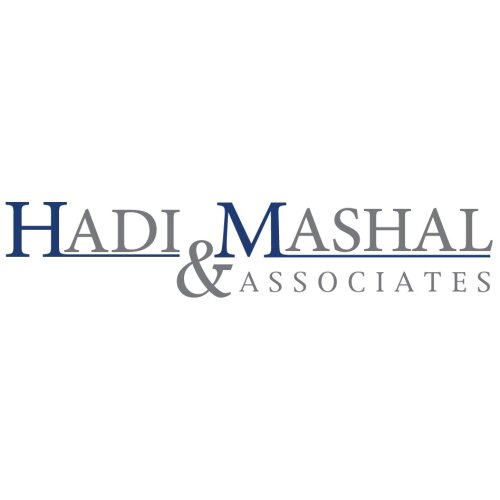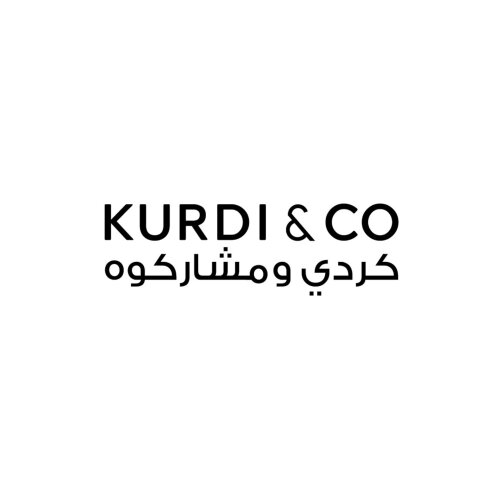Best Water Law Lawyers in Palestine
Share your needs with us, get contacted by law firms.
Free. Takes 2 min.
Or refine your search by selecting a city:
List of the best lawyers in Palestine
About Water Law in Palestine
Water is a vital resource in Palestine, where access and control are often shaped by political, environmental, and legal issues. Water Law in Palestine refers to the collection of legal principles, regulations, and governmental policies governing the management, allocation, and use of water resources. The Palestinian Water Authority (PWA) is the main governmental body responsible for regulating water usage, ensuring equitable distribution, and managing water infrastructure. Water Law in Palestine encompasses various aspects, including municipal supply, agricultural irrigation, groundwater extraction, water pollution, and the rights and responsibilities between communities, the government, and private individuals.
Why You May Need a Lawyer
There are several situations where individuals, businesses, or organizations may require legal advice or representation regarding Water Law in Palestine. Some of the most common scenarios include:
- Disputes over water access or distribution between neighbors, communities, or municipalities.
- Issues related to groundwater extraction permits and compliance with well-drilling regulations.
- Legal conflicts regarding water theft or illegal connection to water networks.
- Allegations or accusations of water pollution affecting private, agricultural, or communal resources.
- Compensation claims for property or crop damage caused by water-related issues or infrastructure projects.
- Opposition to or negotiation with governmental authorities on matters of water allocation or funding for water projects.
- Understanding and complying with complex water regulations governing commercial or agricultural activities.
An experienced lawyer can help interpret the laws, mediate disputes, represent your interests before the courts or authorities, and ensure that your rights are protected when dealing with any matter related to water use or management.
Local Laws Overview
The legal framework governing water in Palestine is shaped by a mix of local legislation, customary law, and international agreements. Key aspects include:
- The Palestinian Water Law No. 3 of 2002 is the primary legislation regulating water resources, including supply, use, management, and protection.
- The Palestinian Water Authority (PWA) is charged with planning, developing, and regulating water supply and wastewater services.
- Permits are required for drilling new wells, extracting groundwater, or building water infrastructure, and these permits are subject to approval from the PWA and sometimes the Israeli Civil Administration in Area C.
- Water is considered public property, with usage rights allocated according to national priorities and established rights of individuals or communities.
- The law addresses penalties for illegal connections, overuse, or pollution of water resources.
- International agreements such as the Oslo II Accord contain provisions relating to water sharing and joint management between Palestinians and Israelis, resulting in further complexities in regulatory enforcement and resource allocation, especially in the West Bank and Gaza Strip.
Local municipal bylaws and community agreements may also influence how water resources are shared or disputes are resolved within villages or towns.
Frequently Asked Questions
What is the main law governing water resources in Palestine?
The Palestinian Water Law No. 3 of 2002 serves as the main legal framework addressing the management, use, and protection of water resources in Palestine.
Who is responsible for regulating water in Palestine?
The Palestinian Water Authority (PWA) is the principal regulator, overseeing policy implementation, resource licensing, and enforcement of water-related laws across the West Bank and Gaza Strip.
Do individuals or farmers need a permit to drill a well?
Yes, drilling wells or extracting groundwater requires prior approval and a permit from the Palestinian Water Authority. Unauthorized drilling is illegal and subject to penalties.
What should I do if I am involved in a dispute about water access with my neighbor?
It is best to start with dialogue and mediation. If the conflict persists, consult a lawyer specialized in Water Law to help resolve the matter through legal channels or the relevant authorities.
Can I be penalized for illegal water connections?
Yes, unauthorized water connections or tampering with water infrastructure is illegal and punishable under Palestinian law. Penalties may include fines and other legal consequences.
How are water distribution and usage prioritized in Palestine?
Water distribution is based on national priorities such as public consumption, agriculture, and industrial use, taking into account existing rights and needs of the population.
Is there specific legislation addressing water pollution?
Yes, the Water Law and related environmental regulations prohibit the pollution of water resources. Violators may face penalties and be required to compensate for damages.
What rights do landowners have regarding water on their property?
While water is considered a public resource, landowners may have rights to use water on their property, but such use is regulated and subject to permits to ensure sustainability and fairness.
How does the political situation affect water law enforcement?
Due to ongoing occupation and administrative divisions, water law enforcement and resource access can vary significantly, especially in different areas of the West Bank and Gaza. International agreements and coordination with various authorities may also apply.
Can water-related issues be resolved outside of court?
Many disputes are resolved through community mediation or intervention by local authorities. However, legal proceedings may be necessary if an agreement cannot be reached or if the dispute is of a complex nature.
Additional Resources
For more information or assistance regarding Water Law in Palestine, consider reaching out to:
- The Palestinian Water Authority (PWA) - for licensing, permits, and regulations.
- Local municipal councils - for issues related to community water distribution and local bylaws.
- The Ministry of Agriculture - for water use in farming and irrigation matters.
- Environmental Quality Authority - for concerns about water pollution and environmental regulations.
- Non-governmental organizations such as EWASH (The Emergency Water, Sanitation and Hygiene Group) and Palestinian Hydrology Group (PHG) - for advocacy, community projects, and support.
- Lawyers or legal clinics specializing in environmental and administrative law.
Next Steps
If you believe you need legal assistance with a water-related issue, here is how you can proceed:
- Clearly identify your issue and gather any relevant documentation or evidence, such as permits, correspondence, or photographs.
- Contact the appropriate governmental body, such as the Palestinian Water Authority, for initial guidance or to file a formal complaint if required.
- If the issue involves a legal dispute, seek advice from a qualified lawyer experienced in Water Law. Many law firms and legal aid organizations can provide consultations or representation.
- Consider mediation or dispute resolution services for conflicts that may be resolved outside the courts.
- Stay informed about your rights and responsibilities under local and national laws concerning water use and management.
- Follow up on any legal or administrative actions and maintain records of all communications and steps taken in your case.
Navigating Water Law in Palestine can be complex, but with the right support and information, you can ensure your interests are protected and that you comply with applicable laws and regulations.
Lawzana helps you find the best lawyers and law firms in Palestine through a curated and pre-screened list of qualified legal professionals. Our platform offers rankings and detailed profiles of attorneys and law firms, allowing you to compare based on practice areas, including Water Law, experience, and client feedback.
Each profile includes a description of the firm's areas of practice, client reviews, team members and partners, year of establishment, spoken languages, office locations, contact information, social media presence, and any published articles or resources. Most firms on our platform speak English and are experienced in both local and international legal matters.
Get a quote from top-rated law firms in Palestine — quickly, securely, and without unnecessary hassle.
Disclaimer:
The information provided on this page is for general informational purposes only and does not constitute legal advice. While we strive to ensure the accuracy and relevance of the content, legal information may change over time, and interpretations of the law can vary. You should always consult with a qualified legal professional for advice specific to your situation.
We disclaim all liability for actions taken or not taken based on the content of this page. If you believe any information is incorrect or outdated, please contact us, and we will review and update it where appropriate.
Browse water law law firms by city in Palestine
Refine your search by selecting a city.











